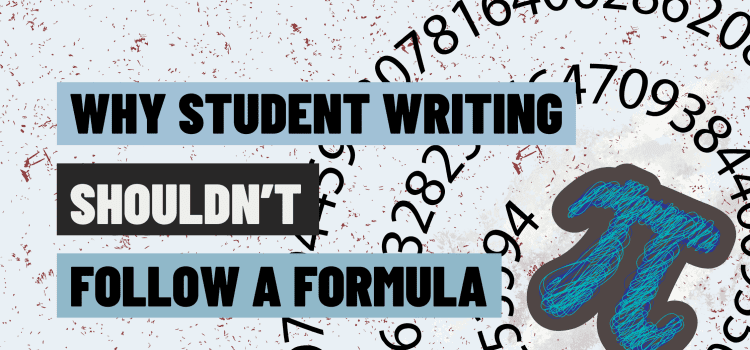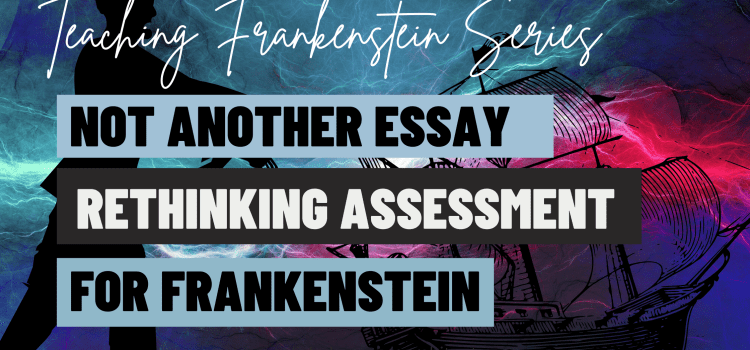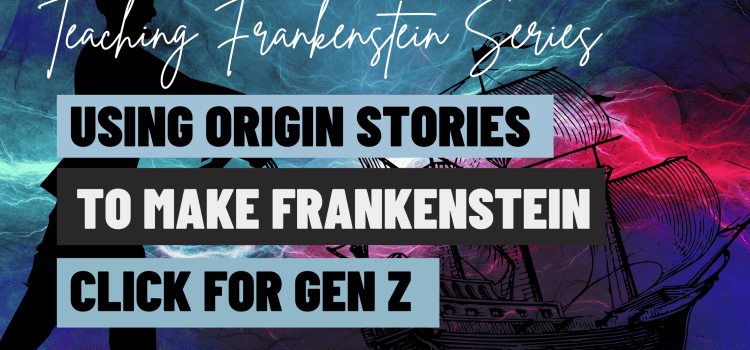Daylight Savings Stole an Hour—But What If We Controlled Time in the Classroom? Twice a year, time shifts under our feet. We lose an hour. We gain an hour. We argue about whether we should still be doing this in
Breaking Free from Rigid Thinking: Why Student Writing Shouldn’t Follow a Formula

Pi is both perfectly orderly and wildly unpredictable. It follows precise mathematical principles, yet its decimal expansion stretches infinitely without ever settling into a repeating pattern. If we tried to force Pi into a neat formula, we’d lose the very
Not Another Essay: Rethinking Frankenstein Assessment

If you’re tired of reading the same thesis statements about ambition and responsibility in Frankenstein, this one’s for you. Here’s what I’ve realized: Traditional essays about Frankenstein often miss what makes the novel so powerful – its ability to help
Using Origin Stories to Make it Click – Frankenstein for Gen Z

There’s a moment every year when I realize my students are living Mary Shelley’s story, but they can’t see it. It’s the challenge of relevance when teaching Frankenstein for Gen Z. They’re not grave robbers piecing together bodies in secret
What English Teachers Need to Know About DeepSeek: It’s Not About AI, It’s About Strong Thinking

Like trying to ban phones or stop SparkNotes use, trying to prevent AI use is a losing game. DeepSeek’s breakthrough shows why – AI is becoming more accessible and harder to detect. But what if that’s not actually our biggest
